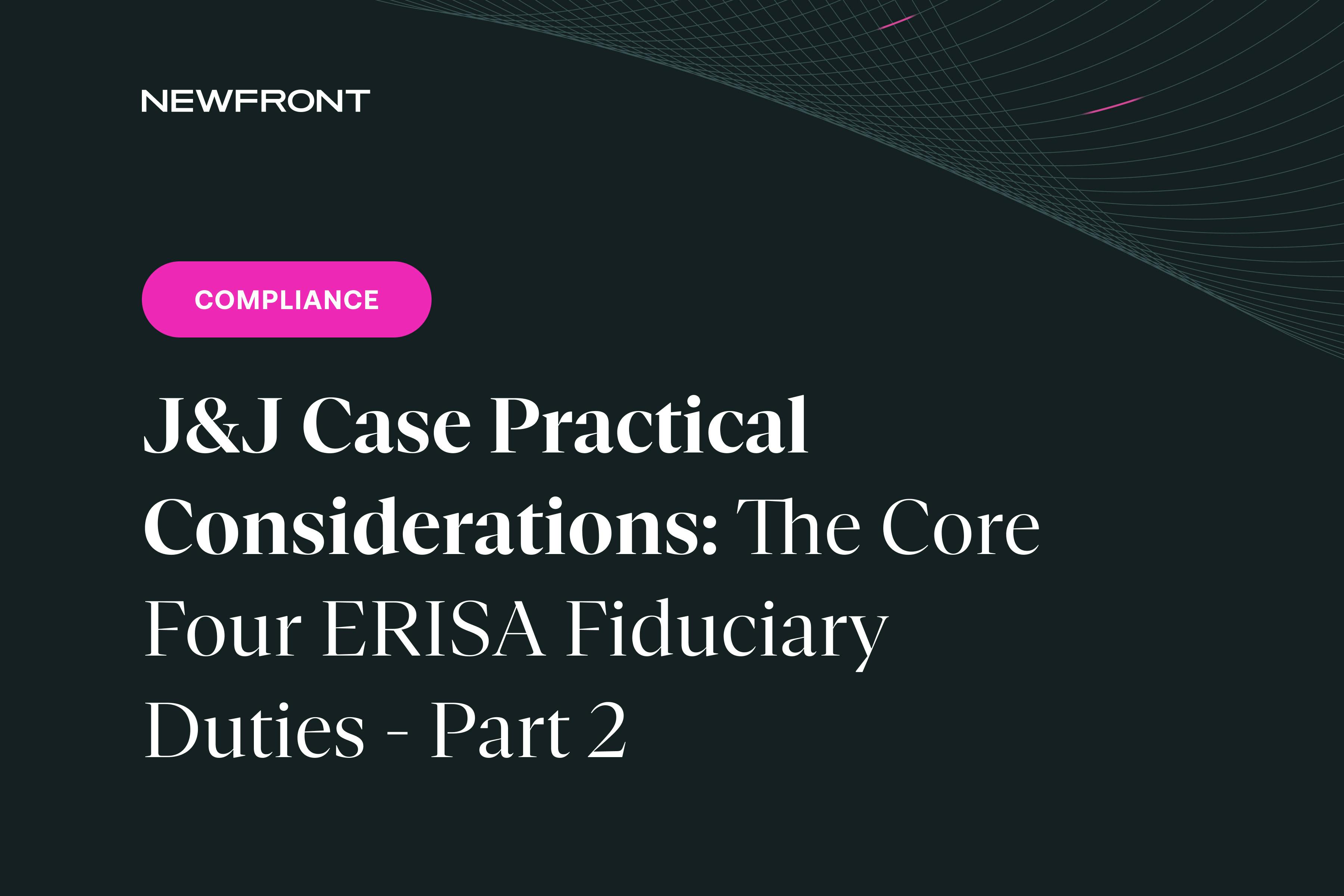Medical and Non-Medical Lactation Expenses
By Brian Gilmore | Published December 13, 2019
Question: Which lactation expenses are eligible medical expenses for reimbursement under a FSA/HRA/HSA?
Short Answer: Breast pumps, lactation supplies, and lactation consultant costs are eligible medical expenses that can be reimbursed through a FSA/HRA/HSA.
General Rule: Expenses Must Qualify as §213(d) Medical Expenses
A health FSA and HRA can reimburse only IRC §213(d) medical expenses. A HSA can reimburse only §213(d) medical expenses on a tax-free basis.
The best general IRS overview of what constitutes a §213(d) medical expense is IRS Publication 502. The slight modifications to the list of reimbursable expenses for account-based plans are set forth in IRS Publication 969.
Eligible Medical Expenses Related to Lactation
The following costs related to lactation qualify as a medical expense for FSA/HRA/HSA reimbursement:
Breast pumps
Prenatal and postnatal lactation support and consulting services
Supplies that assist lactation
Ineligible Expenses Related to Lactation
The following other costs related to lactation do not qualify as a medical expense:
Extra bottles for storage
Breast milk transportation costs
Items and devices that do not help with lactation but merely make it more convenient (e.g., special bras)
Infant formula (except excess costs to treat a special condition)
Supplemental vitamins used in conjunction with breastfeeding
What If the Employer Wants to Reimburse Employees’ Medical Lactation Expenses?
Reimbursement of a medical expense would create a group health plan subject to the full array of laws governing employer-sponsored group health plans (e.g., ERISA, COBRA, ACA, HIPAA, HSA eligibility).
Therefore, employers need to be careful about reimbursing medical lactation-related expenses such as breast pumps, supplies that assist lactation, and lactation consultants. Any such practice would generally require the employer to establish an HRA to comply with all of the group health plan-related laws.
For more details, see our previous post: Employers Should Not Reimburse Medical Expenses Outside of the Plan.
Keep in mind that the ACA already requires non-grandfathered health plans to cover breast pumps and lactation counseling as a free preventive service (no cost-sharing).
What If the Employer Wants to Cover or Reimburse Employees’ Non-Medical Lactation Expenses?
The general rule is that the fair market value of any fringe benefit offered to employees must be included in the employees’ taxable income unless a specific exclusion applies.
There is no exclusion from income that applies to non-medical lactation expenses such as breast milk transportation costs. This means the fair market value of the benefit or reimbursement amount will need to be included in employees’ taxable income and subject to withholding and payroll taxes.
The employer can always gross up employees for the tax liability to eliminate this issue as a concern for employees.
Regulations
IRS Publication 502:
https://www.irs.gov/pub/irs-pdf/p502.pdf
Breast Pumps and Supplies
You can include in medical expenses the cost of breast pumps and supplies that assist lactation. This does not include the costs of excess bottles for food storage.
IRS Announcement 2011-14:
https://www.irs.gov/pub/irs-drop/a-11-14.pdf
The Internal Revenue Service has concluded that breast pumps and supplies that assist lactation are medical care under § 213(d) of the Internal Revenue Code because, like obstetric care, they are for the purpose of affecting a structure or function of the body of the lactating woman. Therefore, if the remaining requirements of § 213(a) are met (for example, the taxpayer’s total medical expenses exceed 7.5 percent of adjusted gross income), expenses paid for breast pumps and supplies that assist lactation are deductible medical expenses. Amounts reimbursed for these expenses under flexible spending arrangements, Archer medical savings accounts, health reimbursement arrangements, or health savings accounts are not income to the taxpayer.
Tri-Agency ACA FAQ Part XII:
The HRSA Guidelines specifically incorporate comprehensive prenatal and postnatal lactation support, counseling, and equipment rental…Coverage of comprehensive lactation support and counseling and costs of renting or purchasing breastfeeding equipment extends for the duration of breastfeeding.
Tri-Agency ACA FAQ Part XXIX:
Subject to reasonable medical management techniques, lactation counseling must be covered without cost sharing by the plan or issuer when it is performed by any provider acting within the scope of his or her license or certification under applicable State law.
Treas. Reg. §1.61-21(a)(1):
(a) Fringe benefits.
(1) In general. Section 61(a)(1) provides that, except as otherwise provided in subtitle A of the Internal Revenue Code of 1986, gross income includes compensation for services, including fees, commissions, fringe benefits, and similar items. For an outline of the regulations under this section relating to fringe benefits, see paragraph (a)(7) of this section. Examples of fringe benefits include: an employer-provided automobile, a flight on an employer-provided aircraft, an employer-provided free or discounted commercial airline flight, an employer-provided vacation, an employer-provided discount on property or services, an employer-provided membership in a country club or other social club, and an employer-provided ticket to an entertainment or sporting event.
IRS Publication 15-B:
https://www.irs.gov/pub/irs-pdf/p15b.pdf
Are Fringe Benefits Taxable?
Any fringe benefit you provide is taxable and must be included in the recipient’s pay unless the law specifically excludes it.
IRS Publication 5137:
https://www.irs.gov/pub/irs-pdf/p5137.pdf
Fringe benefits that do not meet any statutory requirements for exclusion are fully taxable. Although there are special rules and elections for certain benefits, in general, taxable fringe benefits are reported as wages on Form W-2 for the year in which the employee received them.

Brian Gilmore
Lead Benefits Counsel, VP, Newfront
Brian Gilmore is the Lead Benefits Counsel at Newfront. He assists clients on a wide variety of employee benefits compliance issues. The primary areas of his practice include ERISA, ACA, COBRA, HIPAA, Section 125 Cafeteria Plans, and 401(k) plans. Brian also presents regularly at trade events and in webinars on current hot topics in employee benefits law.
Connect on LinkedIn

